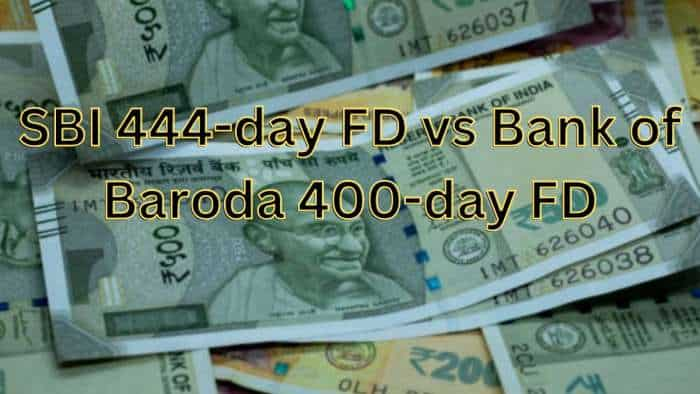Income tax returns (ITR) filing: 10 things set to change from April 1
Income tax returns (ITR) filing: Knowing the changes in tax laws at the beginning of the new financial year will help you plan your taxes meticulously. To avoid any last minute rush next time around, and to ensure optimum tax savings, plan your investments and insurance purchases wisely in line with the tax laws.

Income tax returns (ITR) filing: As the new financial year kicks in, as a taxpayer, you must be aware of all the income tax changes that the Budget 2018 proposed to introduce from the financial year 2019. Knowing the changes in tax laws at the beginning of the new financial year will help you plan your taxes meticulously. To avoid any last minute rush next time around, and to ensure optimum tax savings, plan your investments and insurance purchases wisely in line with the tax laws. You should know that those who do not pay their taxes on time can be held liable and penalties may also be imposed on them.
Here are the key income tax changes that you must know about:
1) Health and Education Cess
While Budget 2018 didn't tweak the tax slabs for individuals and HUFs, it abolished Education, Secondary and Higher Education cess of 3 per cent, replacing it with a new cess – Health and Education Cess. The Health and Education cess will be levied at the rate of 4 per cent including surcharge.
2) Reintroduction of Standard Deduction
Budget 2018 proposed a Standard Deduction of a maximum of Rs 40,000 for salaried employees starting April 1. This deduction will replace conveyance allowance, which has a limit of Rs 19,200, and medical reimbursements, which are limited to Rs 15,000. The net benefit may be around Rs 5,800 at best. However, for those in the highest tax slab, the actual benefits of this may be worth a few hundred rupees.
3) Deduction in interest income for senior citizen
Currently, a deduction of up to Rs 10,000 under Section 80TTA is allowed to all individuals in respect of interest income from deposit accounts (not being time deposits) held with any bank, co-operative society and post office. in FY19, senior citizens can avail some extra benefit. From April 1, their interest income up to Rs 50,000 will be tax-free, instead of current limit of Rs 10,000.
4) Deduction for medical expenditure for critical illness
Under the existing provisions, the deduction for medical expenditure for critical illness is limited to Rs 60,000 for senior citizens above 60 years age and Rs 80,000 for super senior citizens above 80 years age. The Budget 2018 enhanced the above deduction limits to Rs 100,000 uniformly for both categories.
5) Deduction for health insurance, medical expenditure for senior citizens
Under the existing provisions, a maximum deduction of Rs 30,000 is allowed for health insurance premium including Rs 5,000 towards preventive health check-up for resident senior citizens. Alternatively, very senior citizens can claim a deduction of Rs 30,000 for payment towards medical expenses where there is no insurance. A maximum deduction of up to Rs 50,000 can be claimed from FY19. Besides, senior citizens can also claim the deduction for medical expenditure.
6) Tax-free withdrawals on NPS
Tax free withdrawals on National Pension System (NPS) will now be available to both employee subscribers as well as non-employee subscribers. Tax-free withdrawals will be available to the tune of 40 per cent of the total amount payable to employees on closure of their account or if they opt out.
7) LTCG tax on equities
The Budget 2018 reintroduced long-term capital gains (LTCG) of 10 per cent on equity investments in case capital gains exceed Rs 1 lakh in a year. Also, no benefit of indexation will be given.
8) Single premium health insurance policies
Opting for a single premium health insurance plan for a cover exceeding one year will now mean tax deduction on offer on a proportionate basis starting April 1, 2018.
9) Dividend distribution tax on MFs
From April 1, a 10 per cent dividend distribution tax will be charged on mutual funds with a dividend option. The tax will be applicable at the time of availing dividends.
10) Compensation on termination or modification of employment
A large segment of compensation receipts in connection with employment are out of the purview of taxation leading to base erosion and revenue loss. Budget 2018, therefore, proposed to amend section 56 of the I-T Act. any compensation or other payments due to or received by any person in connection with the termination or the modification of the terms and conditions of any contract relating to his employment shall be taxable under the head income from other sources. Such sums received by individuals will be taxed in their hands at the applicable slab rate. As per the budget proposals, the highest tax rate for an individual who has a taxable income of more than Rs one crore is nearly 36 per cent.
Get Latest Business News, Stock Market Updates and Videos; Check your tax outgo through Income Tax Calculator and save money through our Personal Finance coverage. Check Business Breaking News Live on Zee Business Twitter and Facebook. Subscribe on YouTube.
RECOMMENDED STORIES

Top 7 mid cap mutual funds with highest SIP returns in 3 years: Rs 22,222 monthly SIP investment in No 1 fund has converted into Rs 15,07,277

SBI 444-day FD vs Bank of Baroda 400-day FD: What will be maturity amounts on Rs 6 lakh and Rs 10 lakh investments for general and senior citizens?

SBI Latest FD Rates: This is what you can get on Rs 10 lakh investment in 1-year, 3-year, and 5-year tenures
10:46 AM IST









 Non-taxable income: 5 different types of non-taxable income that can help you to save income tax
Non-taxable income: 5 different types of non-taxable income that can help you to save income tax How to save tax if annual income is Rs 7 lakh - Income tax slab 2022-23
How to save tax if annual income is Rs 7 lakh - Income tax slab 2022-23 ITR filing FY 2021-22: Know last date and penalty if you miss DEADLINE
ITR filing FY 2021-22: Know last date and penalty if you miss DEADLINE ITR filing: How to file Income Tax Returns online, your step-by-step guide
ITR filing: How to file Income Tax Returns online, your step-by-step guide  Income Tax Return Filing: Late filing fees Rs 5000! File ITR by THIS date- Here is how
Income Tax Return Filing: Late filing fees Rs 5000! File ITR by THIS date- Here is how